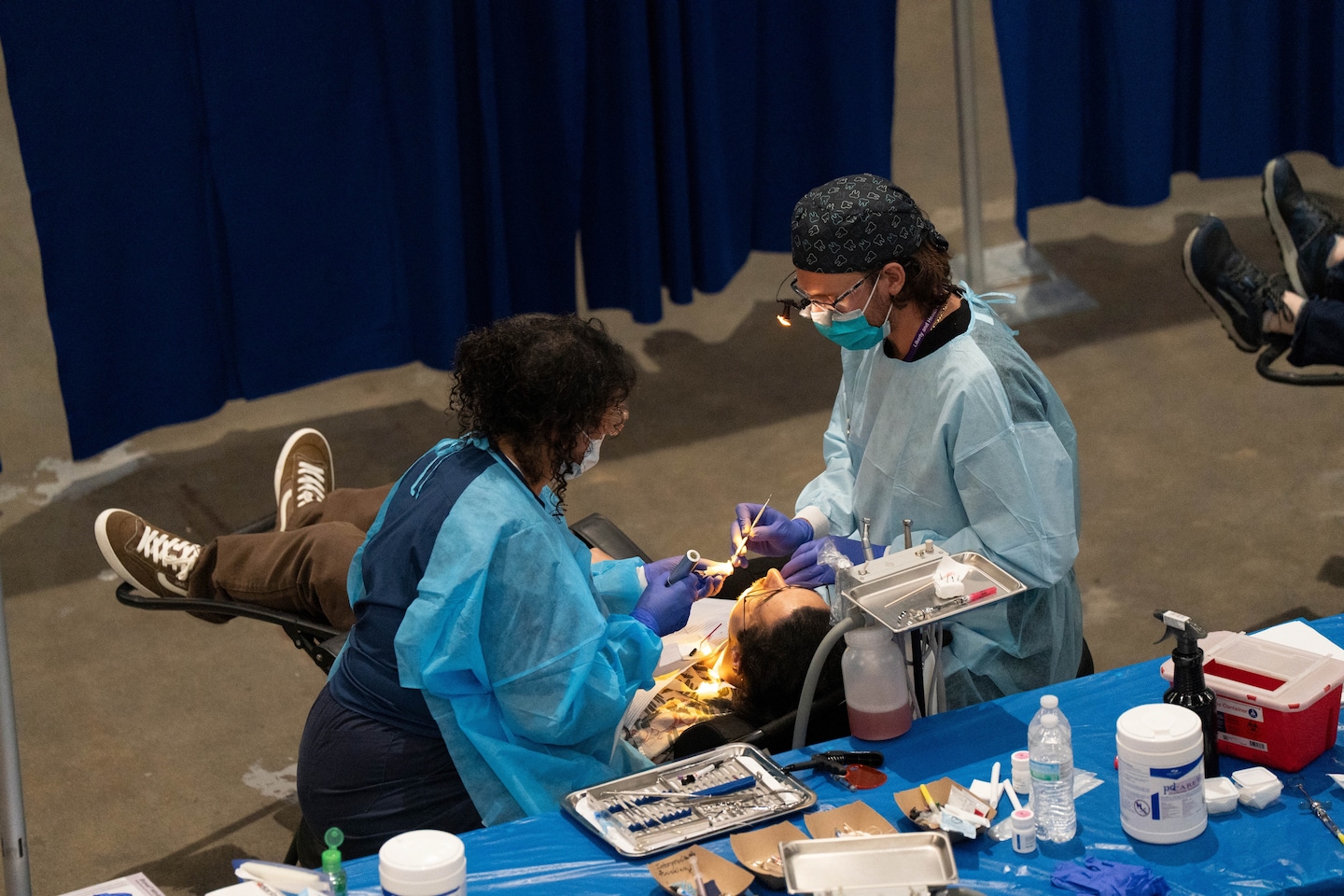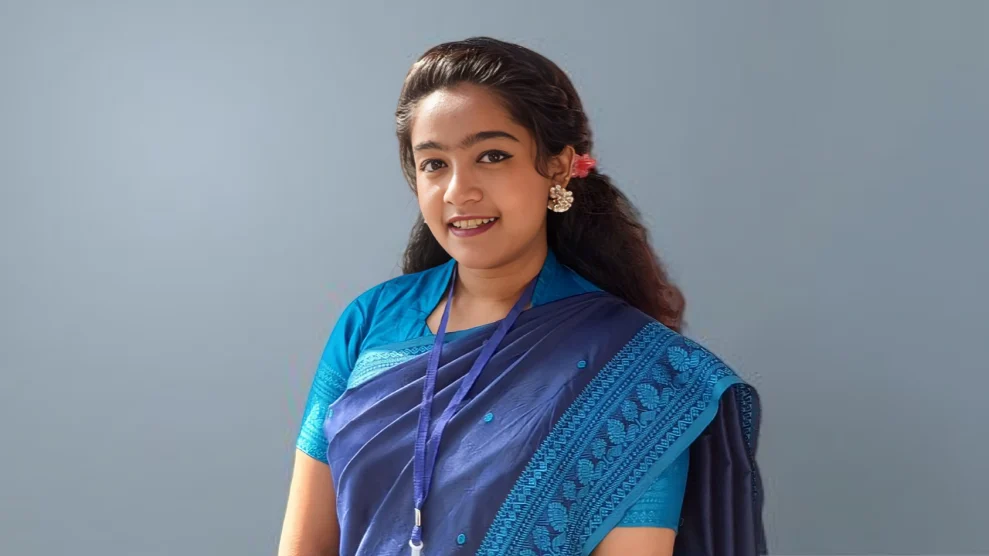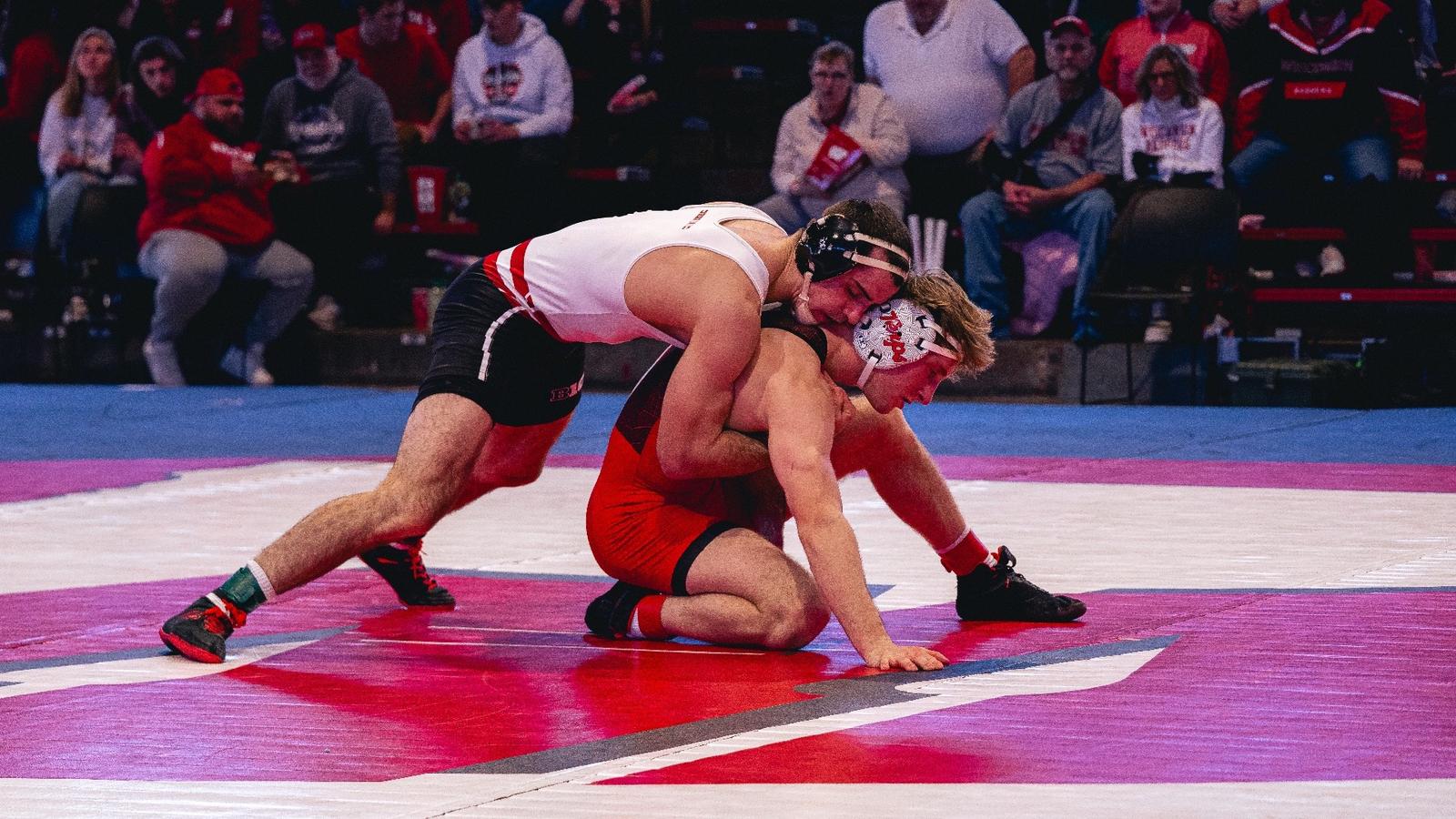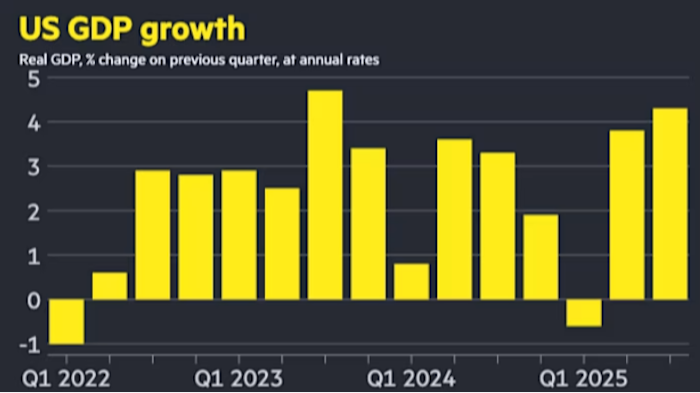- The diseases RFK Jr. says children don’t need to be routinely vaccinated for Politico
- CDC staff ‘blindsided’ as child vaccine schedule unilaterally overhauled The Washington Post
- CDC Urges ‘Shared Decision-Making’ on Some Childhood…
Author: admin
-
The diseases RFK Jr. says children don’t need to be routinely vaccinated for – Politico
-

Dentists focus on getting young adults to stop skipping care
When Usman Ahmad talks to Gen Z patients about going to the dentist, he makes one case: “It’s about the future.”
If they don’t want a missing tooth, or a marred smile, or difficulty eating later in life, he tells them, keep coming back to…
Continue Reading
-

New aircraft now flying out of the Sault
The airport has some good news – a new aircraft is taking off in the Sault.
“The Sault Ste. Marie Airport Development Corporation is pleased to welcome the new Bearskin aircraft to Sault Ste. Marie,” said airport President and CEO Terry Bos.
“Effective Jan. 4 Bearskin has introduced Dash 8 service to the Sault Ste. Marie market with one daily flight on Monday and Tuesday operating with Dash 8 service. We look forward to continued growth of Bearskin’s use of the Dash 8 aircraft in the future, and the comfort the larger aircraft provides to the passenger.”
Bearskin flies to other cities in northern Ontario, such as Sudbury and Thunder Bay.
The airport also released numbers for 2025.
Passenger numbers held almost steady in 2025 compared to 2024 for the Sault Ste. Marie Airport.
Totals last year were 153,202, down only slightly from 153,57 in 2024. However December to December saw a larger fall-off of 14 per cent – from 13,252 in 2024 to 11,391 in 2025.
The current number of flights provided is as follows: Air Canada Express, two flights daily; Bearskin Airlines, three flights daily Sunday and Monday, four flights daily Tuesday, Thursday, and Friday, and five flights Wednesday; Porter one flight daily.
More information about flights to and from the Sault airport is available here.
Continue Reading
-

Raisa Mehzabeen: Nutrition and Oncology – A Critical Yet Underutilized Component of Cancer Care
“Cancer is not always a purely localized process; many cancers and many cancer treatments have systemic effects that disrupt metabolism, immunity, and functional capacity.
While modern oncology has made remarkable advances…
Continue Reading
-

Badgers take down Terrapins for first Big Ten win
MADISON, Wis – Wisconsin wrestling collected its first Big Ten victory this season, beating Maryland, 28–13 at the Field House this Sunday. The team bounced back after its first loss on Friday, and now has a 9-1 record.
While Maryland won…
Continue Reading
-

Maryland Dept of Health issues notification of potential measles exposures associated with person who traveled through Maryland
Maryland Dept of Health issues notification of potential measles exposures associated with person who traveled through MarylandJanuary 11, 2026
Media Contact:
Amanda Hils, Assistant Director for Media Relations, [email protected]Baltimore,…
Continue Reading
-

25 Posts Not To Miss From ASCO GI 2026, part 2
The 2026 ASCO Gastrointestinal Cancers Symposium (ASCO GI 2026) is being held January 8–10, 2026, at Moscone West in San Francisco, California, with both in-person and online participation available for the global GI oncology…
Continue Reading
-
3D printed porous tantalum loaded with quercetin–curcumin–piperine PLGA nanoparticles for bone defect repair
Moraschini, V. et al. Immunological response of allogeneic bone grafting: A systematic review of prospective studies. Journal of Oral Pathology & Medicine 49, 395–403, doi:https://doi.org/10.1111/jop.12998 (2020).
Raquel Maia, F., Correlo, V. M., Oliveira, J. M. & Reis, R. L. 535–558 (Elsevier, 2019).
Fan, L., Chen, S., Yang, M., Liu, Y. & Liu, J. Metallic materials for bone repair. Adv. Healthc. Mater. https://doi.org/10.1002/adhm.202302132 (2024).
Duvvuru, M. K. et al. Bone marrow stromal cells interaction with titanium; effects of composition and surface modification. PLOS ONE 14, e0216087, doi:https://doi.org/10.1371/journal.pone.0216087 (2019).
Ganesh, N. & Rambabu, S. Finite Element Analysis of Porous Ti-6Al-4V Alloy Structures for Biomedical Applications. J. Phy. Conf. Series 2070, 012224. https://doi.org/10.1088/1742-6596/2070/1/012224 (2021).
Huang, G., Pan, S.-T. & Qiu, J.-X. The clinical application of porous tantalum and its new development for bone tissue engineering. Materials 14, 2647, doi:https://doi.org/10.3390/ma14102647 (2021).
Levine, B. R., Sporer, S., Poggie, R. A., Della Valle, C. J. & Jacobs, J. J. Experimental and clinical performance of porous tantalum in orthopedic surgery. Biomaterials 27, 4671–4681, doi:https://doi.org/10.1016/j.biomaterials.2006.04.041 (2006).
Francois, E. L. & Yaszemski, M. J. 761–767 (Elsevier, 2019).
Gil Mur, F. J. 267–289 (Elsevier, 2016).
Li, G., Chen, L. & Chen, K. Curcumin promotes femoral fracture healing in a rat model by activation of autophagy. Medical Science Monitor 24, 4064–4072, doi:https://doi.org/10.12659/msm.908311 (2018).
Bian, W., Xiao, S., Yang, L., Chen, J. & Deng, S. Quercetin promotes bone marrow mesenchymal stem cell proliferation and osteogenic differentiation through the H19/miR-625-5p axis to activate the Wnt/β-catenin pathway. BMC Complementary Med. Ther. https://doi.org/10.1186/s12906-021-03418-8 (2021).
Chen, Y.-C. et al. Anti-inflammation performance of curcumin-loaded mesoporous calcium silicate cement. Journal of the Formosan Medical Association 116, 679–688, doi:https://doi.org/10.1016/j.jfma.2017.06.005 (2017).
Liu, N. et al. Quercetin-Coating promotes osteogenic Differentiation, osseointegration and Anti-Inflammatory properties of Nano-Topographic modificated 3D-Printed Ti6Al4V implant. Front Bioeng Biotechnol 10, 933135, doi:https://doi.org/10.3389/fbioe.2022.933135 (2022).
Tabanelli, R., Brogi, S. & Calderone, V. Improving Curcumin bioavailability: current strategies and future perspectives. Pharmaceutics 13, 1715, doi:https://doi.org/10.3390/pharmaceutics13101715 (2021).
Heidari, H. et al. Curcumin-piperine co‐supplementation and human health: A comprehensive review of preclinical and clinical studies. Phytotherapy Research 37, 1462–1487, doi:https://doi.org/10.1002/ptr.7737 (2023).
Kumar, P., Singh, S. & Jamwal, S. Neuroprotective potential of Quercetin in combination with Piperine against 1-methyl-4-phenyl-1,2,3,6-tetrahydropyridine-induced neurotoxicity. Neural Regeneration Research 12, 1137, doi:https://doi.org/10.4103/1673-5374.211194 (2017).
Danhier, F. et al. PLGA-based nanoparticles: an overview of biomedical applications. Journal of Controlled Release 161, 505–522, doi:https://doi.org/10.1016/j.jconrel.2012.01.043 (2012).
Makadia, H. K. & Siegel, S. J. Poly Lactic-co-Glycolic acid (PLGA) as biodegradable controlled drug delivery carrier. Polymers 3, 1377–1397, doi:https://doi.org/10.3390/polym3031377 (2011).
Bohrey, S., Chourasiya, V. & Pandey, A. Polymeric nanoparticles containing diazepam: preparation, optimization, characterization, in-vitro drug release and release kinetic study. Nano Converg. https://doi.org/10.1186/s40580-016-0061-2 (2016).
Hernández-Giottonini, K. Y. et al. PLGA nanoparticle preparations by emulsification and nanoprecipitation techniques: effects of formulation parameters. RSC Advances 10, 4218–4231, doi:https://doi.org/10.1039/c9ra10857b (2020).
Anjana, D. . Development of Curcumin Based Ophthalmic Formulation. American J. Infect. Dis. 8, 41–49. https://doi.org/10.3844/ajidsp.2012.41.49 (2012).
Khursheed, R. et al. Development and validation of RP-HPLC method for simultaneous determination of Curcumin and Quercetin in Extracts, marketed Formulations, and Self-Nanoemulsifying drug delivery system. Re:GEN Open 1, 43–52, doi:https://doi.org/10.1089/regen.2021.0021 (2021).
Tan, J. M., Bullo, S., Fakurazi, S. & Hussein, M. Z. Preparation, characterisation and biological evaluation of biopolymer-coated multi-walled carbon nanotubes for sustained-delivery of silibinin. Sci. Rep. https://doi.org/10.1038/s41598-020-73963-8 (2020).
Aldawsari, M. F. et al. Gallic-Acid-Loaded PLGA nanoparticles: A promising transdermal drug delivery system with antioxidant and antimicrobial agents. Pharmaceuticals 16, 1090, doi:https://doi.org/10.3390/ph16081090 (2023).
Wu, S.-T. et al. Treatment of pancreatic ductal adenocarcinoma with tumor antigen specific-targeted delivery of paclitaxel loaded PLGA nanoparticles. BMC Cancer https://doi.org/10.1186/s12885-018-4393-7 (2018).
Yang, G., Liu, L., Lv, F. & Wang, S. Conjugated polyelectrolyte materials for promoting progenitor cell growth without serum. Sci. Rep. https://doi.org/10.1038/srep01702 (2013).
Huang, L. et al. Lactoferrin promotes osteogenesis of MC3T3-E1 cells induced by mechanical strain in an extracellular signal–regulated kinase 1/2–dependent manner. American Journal of Orthodontics and Dentofacial Orthopedics 159, e113-e121, doi:https://doi.org/10.1016/j.ajodo.2020.08.015 (2021).
He, S. et al. Nampt promotes osteogenic differentiation and lipopolysaccharide-induced interleukin-6 secretion in osteoblastic MC3T3-E1 cells. Aging 13, 5150–5163, doi:https://doi.org/10.18632/aging.202434 (2021).
Guan, M.et al.
Long-lasting bactericidal activity through selective physical puncture and controlled ions release of polydopamine and silver nanoparticles–loaded TiO < sub > 2 nanorods in vitro and in vivo
Kara Özenler, A. et al. 3D Bioprinting of mouse pre-osteoblasts and human MSCs using Bioinks consisting of gelatin and decellularized bone particles. Biofabrication 16, 025027, doi:https://doi.org/10.1088/1758-5090/ad2c98 (2024).
Hu, J. et al. Design of synthetic collagens that assemble into supramolecular banded fibers as a functional biomaterial testbed. Nat. Commun. https://doi.org/10.1038/s41467-022-34127-6 (2022).
Wu, J. et al. Mmu_circ_003795 regulates osteoblast differentiation and mineralization in MC3T3–E1 and MDPC23 by targeting COL15A1. Molecular Medicine Reports 22, 1737–1746, doi:https://doi.org/10.3892/mmr.2020.11264 (2020).
Wei, J. et al. Significance and considerations of Establishing standardized critical values for critical size defects in animal models of bone tissue regeneration. Heliyon 10, e33768, doi:https://doi.org/10.1016/j.heliyon.2024.e33768 (2024).
Zhou, L. et al. A rabbit osteochondral defect (OCD) model for evaluation of tissue engineered implants on their biosafety and efficacy in osteochondral repair. Front. Bioeng. Biotechnol. https://doi.org/10.3389/fbioe.2024.1352023 (2024).
Wu, Y., Fan, M., Tan, S., Guo, Q. & Xu, H. Effect of Huoxue Jiegu compound capsule on osteoblast differentiation and fracture healing by regulating the PI3K/Akt/mTOR signaling pathway in rabbits. Heliyon 10, e36175, doi:https://doi.org/10.1016/j.heliyon.2024.e36175 (2024).
Meng, Z. L. et al. Reconstruction of large segmental bone defects in rabbit using the Masquelet technique with α-calcium sulfate hemihydrate. J. Orthop. Surg. Res., https://doi.org/10.1186/s13018-019-1235-5 (2019).
Zhao, D. & Ma, Z. Application of biomaterials for the repair and treatment of osteonecrosis of the femoral head. Regenerative Biomaterials 7, 1–8, doi:https://doi.org/10.1093/rb/rbz048 (2020).
Clutterbuck, A. L., Allaway, D., Harris, P. & Mobasheri, A. Curcumin reduces prostaglandin E2, matrix metalloproteinase-3 and proteoglycan release in the secretome of interleukin 1β-treated articular cartilage. F1000Research 2, 27–32. https://doi.org/10.12688/f1000research.2-147.v1 (2013).
Wong, R. W. K. & Rabie, A. B. M. Effect of Quercetin on preosteoblasts and bone defects. The Open Orthopaedics Journal 2, 27–32, doi:https://doi.org/10.2174/1874325000802010027 (2008).
Woo, J. H. et al. Molecular mechanisms of curcumin-induced cytotoxicity: induction of apoptosis through generation of reactive oxygen species, down-regulation of Bcl-XL and IAP, the release of cytochrome c and Inhibition of Akt. Carcinogenesis 24, 1199–1208, doi:https://doi.org/10.1093/carcin/bgg082 (2003).
K. Wong, R. W. & M. Rabie, A. B. Effect of Quercetin on preosteoblasts and bone defects. The Open Orthopaedics Journal 2, 27–32, doi:https://doi.org/10.2174/1874325000802010027 (2008).
Mirshafiee, V., Jiang, W., Sun, B., Wang, X. & Xia, T. Facilitating translational nanomedicine via predictive safety assessment. Molecular Therapy 25, 1522–1530, doi:https://doi.org/10.1016/j.ymthe.2017.03.011 (2017).
Bobyn, J. D. et al. Clinical Validation of a Structural Porous Tantalum Biomaterial for Adult Reconstruction. J. Bone Joint Surg. 86, 123–129. https://doi.org/10.2106/00004623-200412002-00017 (2004).
Continue Reading
-

US economy grew at 4.3% rate in third quarter
This article picked by a teacher with suggested questions is part of the Financial Times free schools access programme. Details/registration here.
Read our full range of US High School economics picks here.
Read the FT article and then answer the questions below.
US economy grew at 4.3% rate in third quarter
-
The official data showed the US economy grew at an annualised rate of 4.3 per cent in the third quarter. How did this actual figure compare to the expectations of economists polled by Bloomberg, and what does this difference imply about the overall strength of the economy during that period?
-
Consumer spending on healthcare and computing helped boost growth. What economic role does consumer spending play in GDP?
-
The article states that a fall in imports “helped” the GDP figure, and “overall net trade added 1.6 percentage points to the headline rate.” Why do imports have a negative effect on the calculation of a country’s GDP?
-
The article mentions that consumer confidence fell to its second-lowest level in five years. Why might lower consumer confidence affect future economic growth?
-
An economic counsellor to the US Treasury Secretary states, “Exports are up almost 9 per cent, imports are down about five,” which contributed to a large net trade boost to growth. Explain how a strong emphasis on exports over imports (improving the trade balance) could lead to a “re-industrialisation rejuvenation” in the US
-
The article mentions a “sharp slowing in inflation to 2.7 per cent.” If your personal income or allowance only increased by 1 per cent this year, what would this 2.7 per cent inflation rate mean for your purchasing power?
-
Economists watch the pace of national inventory rebuild. If businesses see slowing consumer momentum, how does their action on inventory levels affect the calculation of the country’s GDP growth in the following quarter?
-
In your own words, explain why GDP is such an important measure for economists, policymakers, and ordinary people. What can GDP tell us, and what are some things it cannot tell us?
Joel Miller and James Redelsheimer, Foundation for Economic Education.
Click here for FEE FT Classroom Edition with classroom-ready presentations and suggested answers for teachers.Continue Reading
-
-

Sri Lanka beats Pakistan by 14 runs to draw T20 series 1-1
DAMBULLA, Sri Lanka (AP) — Sri Lanka ended a 14-year drought by beating Pakistan in a Twenty20 game at home to draw their three-match series 1-1.
The hosts won the third T20 by 14 runs on Sunday.
In a…
Continue Reading